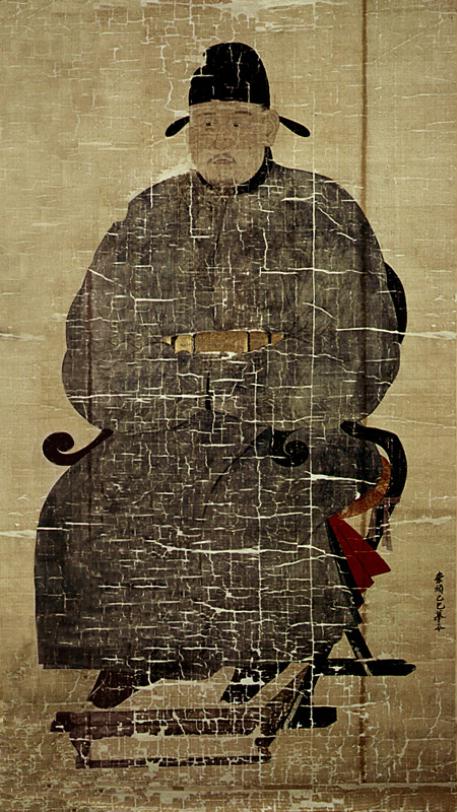- Jeong Mongju
Infobox Korean name

hangul=정몽주
hanja=鄭夢周
rr=Jeong Mongju
mr=Chŏng Mong-ju
hangulho=포은
hanjaho=圃隱
rrho=Po Eun
mrho=P'o ŬnJeong Mongju (1337 – 1392), often known by his pen name Po Eun, was a Korean scholar born under the
Goryeo dynasty. He was born inYeongcheon , to a family of the Yeongil Jeong clan. At the age of 23, after taking three different Civil Service literary examinations and receiving the highest marks possible on all three, in 1367 he became an instructor inNeo-Confucianism at theGukjagam , then called "Seonggyungwan," whilst simultaneously holding a government position, and was a faithful public servant to King U. The king had great confidence in his wide knowledge and good judgement, and so he participated in various national projects and his scholarly works earned him great respect in the Goryeo court. He was most knowledgeable about human behaviour, and visitedChina andJapan as a diplomat for the king, securing promises of Japanese aid in defeating pirates and managing to secure peace withMing dynasty China in 1385. He also founded an institute devoted to the theories ofConfucianism .Jeong was murdered in 1392 by five men on the
Sonjukkyo Bridge in Gaeseong, following a party held for him by his political rivalYi Seonggye (who becameKing Taejo of Joseon ). This bridge, now inNorth Korea , has now become a national monument of that country. A brown spot on one of the stones is said to be Jeong's bloodstain, and to become red when it rains.The 474-year-old Goryeo Dynasty effectively ended with Jeong's death, and was followed by the
Joseon Dynasty . Jeong's noble death symbolises his faithful allegiance to the king, and he was later venerated even by Joseon monarchs. In 1517, 125 years after his death, when he was canonised into the National Academy alongside other Korean sages such asYi I (Yulgok) andYi Hwang (Toegye).Poem
Though I die, and die again; though I die one hundred times,
Long after my bones have turned to dust, whether my soul exists or not,
Ever loyal to my Lord, how can this one red heart of mine ever fade away?
--
Sijo by Jeong Mongjuee also
*
List of Korea-related topics
*List of Goryeo people
*Korean philosophy
Wikimedia Foundation. 2010.
